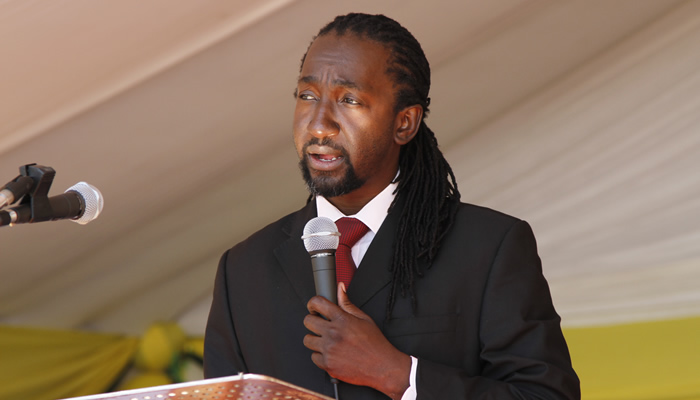By Patrick Zhuwao
Last week’s instalment of the ZBR (ZBR13, Between a Rock and a Hard Place: The Quandary of Independent Candidates) described the situations of independent candidates as being akin to that of a person who loses his car keys on the dark side of the street only to look for them on the lit side, foolishly hoping to find them there!

I submitted that such a person needs to develop an alternative strategy to find his lost keys on that the dark side of the street. Such a strategy needs to acknowledge that finding lost keys can be achieved by other means that do not involve a visual search especially in light of the absence of light.
By extention, I opined that Zimbabwe’s aspiring candidates, including those who have been disillusioned by the bad behaviour of mainstream political parties, needed frameworks that address those real challenges of mainstream political parties that are forcing some of them into independent candidature.
It is therefore trite that such a momentous responsibility cannot be left to Zimbabwe’s aspiring candidates only. It is a national, and indeed patriot obligation for all of us to contribute towards the development of such frameworks. Indeed, iwe neni tine basa rekugadzira hurongwa hwacho. Umsebenzi lo umkhulu (we all have the collective responsibility of developing those frameworks. It is a big responsibility).
In this instalment of the ZBR, I propose that the aforementioned frameworks, of necessity, direct Zimbabwe towards a new polity; one that takes into consideration the objective reality that Zimbabwe finds herself in.
The Zimbabwean body politic is not only saddled under the yoke of several coups (both at the state and political party level), but has to address several socio-economic and political phenomena whose resolutions are as multifaceted as harnessing the demographic dividend and restructuring the Zimbabwean polity, especially within the context of the violation of the Constitution of Zimbabwe.
As we move towards the conceptualisation of such a new polity, it is necessary that we all have a common understanding of what constitutes the Zimbabwean polity. The Zimbabwean polity is a political community that encapsulates a vast multitude of resource manipulating organisational structures. These organisational structures need not necessarily have control over the resources in any fixed geographic space.
Consequently, the Zimbabwean polity includes Zimbabwean nationals and citizens, its political formations and civil society organisations, and foreign forces and multi-lateral institutions. By way of an example, the US Congress constitutes part of the Zimbabwean polity by virtue of its ability to manipulate the resources of the Bretton Woods Institutions through the Zimbabwe Democracy and Economic Recovery Act (ZIDERA).
However, for the purposes of this ZBR, we will limit our discussion on the Zimbabwean polity to Zimbabwean political formations. A necessary precondition for developing such a new polity is the articulation of the most defining common theme and characteristic of Zimbabwe’s political formations.
It is my considered view that political formations in Zimbabwe are under siege from small numbers of certain persons within their leadership who have adopted a sense of entitlement. In other words, there are some leaders in the various political formations who believe that they are entitled to the leadership and ownership of the political formations at the exclusion of the majority of members; the chunhu chedu (our thing) mantra.
As an example, most, if not all, of the surviving six people that have occupied the post of Vice President of ZANU PF and MDC-T have articulated that they ought to be the President of those two political parties. This therefore presents a problem that there six persons who would feel entitled to fill in two positions. It can’t.
The net result of this sense of entitlement at the very apex of the leadership of a political party is that it filters through-out the organisations. Consequently, most leaders in such organisations feel that they are entitled to certain positions. In order to maintain their dominance in these political parties, such leaders inevitably end up creating obstacles and barriers to the entry of new persons.
These barriers are most noticeable when there are elections for which the parties seek to field candidates. New entrants find themselves disqualified from representing mainstream political parties. As a result, such new entrants opt to become independent candidates.
In order to address this anomaly, political formations should establish measures and mechanisms that mitigate against this sense of entitlement which is pervasive throught out their organisations. Such measures must be institutionalised and entrenched within the political party’s constitution.
The NPF Constitution’s provision that two out of the three members of the presidency are between the ages of 40 and 55 is an example of one such provision that effectively allow for senior leaders to recognise that at the end of their term they will need to assume a junior role. This provision is designed to mitigate against the sense of entitlement that results in exclusionary tendencies.
This example has illustrated the challenges that new political entrants face by analysing the notion of entitlement with reference to the case of Vice Presidents in both MDC-T and ZANU PF. This case has been juxtaposed against NPF’s constitutional provision that seeks to address the challenge of entitlement in the NPF Presidency.
In conclusion, for us to address the quandary that independent candidates find themselves in, there is need to address the challenges that political parties face. It is necessary that we conduct exercises that enable us to redefine the polity that Zimbabwe needs; ndiro basa redu (that is our responsibility).
Iwe neni tine basa. Umsebenzi loUmkhulu.
Asante Sana.






